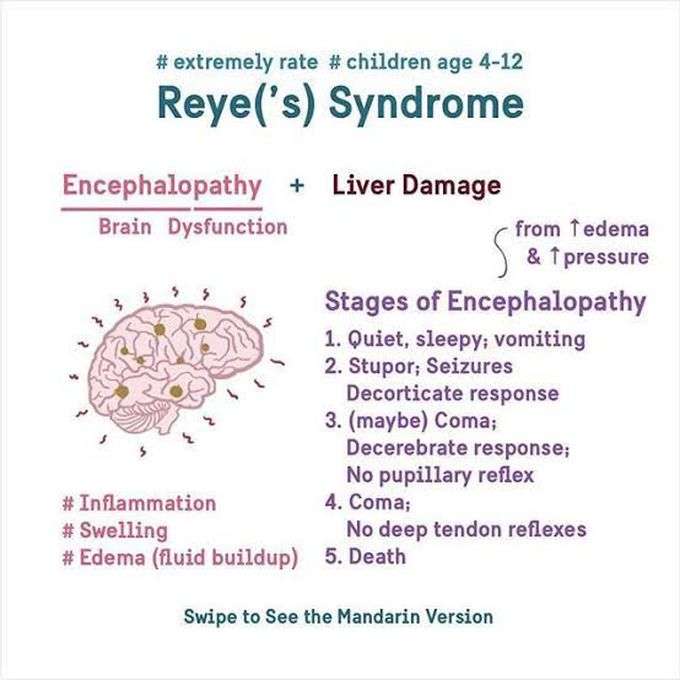


Reye's syndrome
Reye's syndrome (RS) is rare disorder that affects all organs of the body but is most harmful to the brain and the liver—causing an acute increase of pressure within the brain and, often, massive accumulations of fat in the liver and other organs. RS is defined as a two-phase illness because it generally occurs during recovery from a viral infection, such as the flu or chicken pox. It also can develop three to five days after the onset of the viral illness. RS is primarily a children's disease, although it can occur at any age. It is often misdiagnosed. Symptoms may include: Persistent or recurrent vomiting Listlessness Personality changes such as irritability or combativeness Disorientation or confusion Delirium Convulsions Loss of consciousness The cause of RS is unknown. Studies have shown a link between aspirin (salicylate) and the onset of Reye's syndrome. Because of this association, healthcare professionals do not recommend the use of aspirin for children. There is no cure for RS. Treatment focuses on preventing brain damage. Recovery is directly related to the severity of the swelling of the brain. Some individuals recover completely, while others may sustain varying degrees of brain damage.

